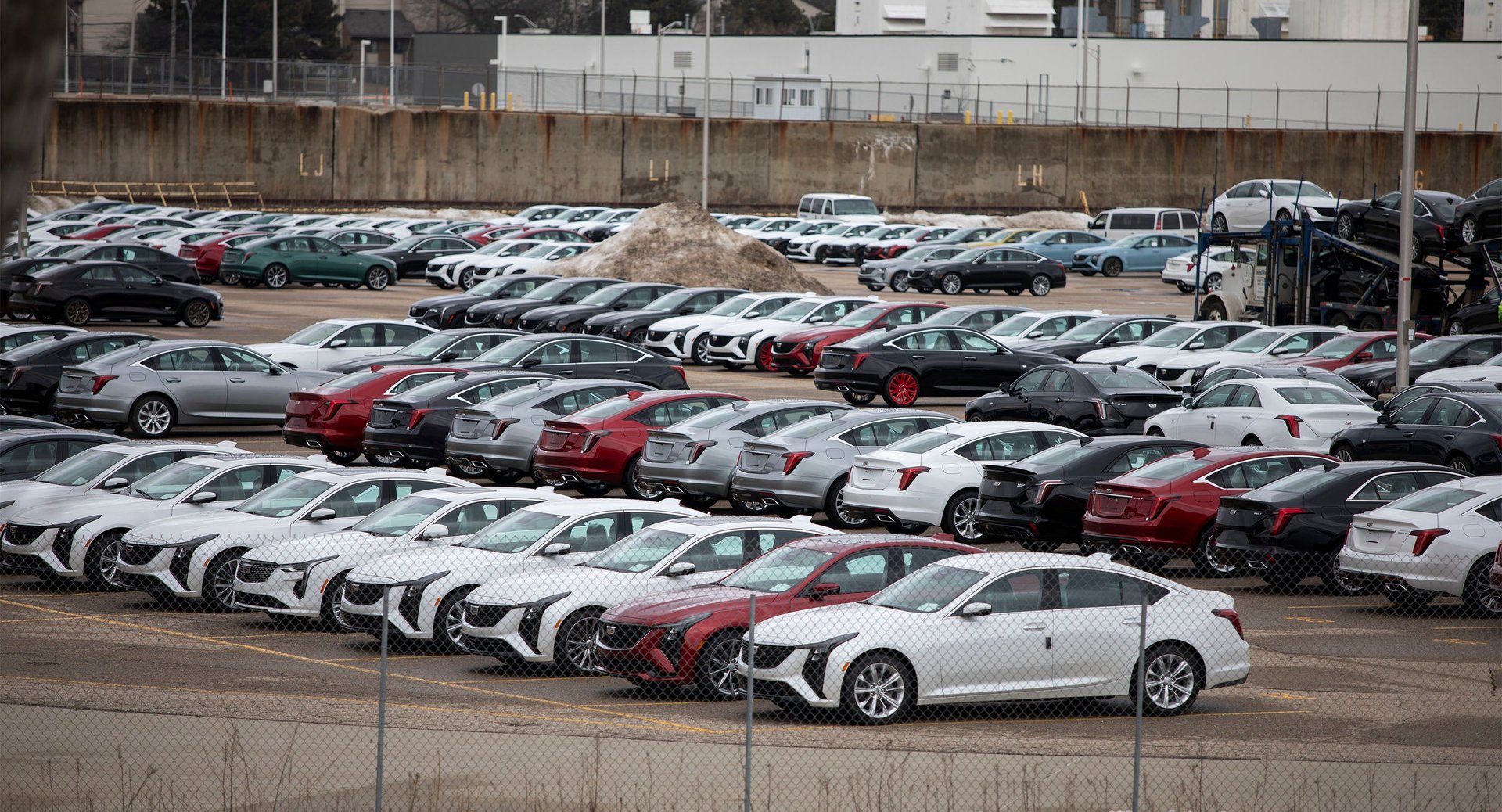GM reports strong first-quarter sales, while Ford's slip as automakers prepare for tariffs
New tariffs set to hit just about all carmakers will soon take effect

Automakers, including General Motors (GM), are beginning to report solid first-quarter sales as the industry prepares for President Donald Trump’s new tariffs. Ford Motor Co. (F) is the exception so far.
Suggested Reading
GM’s U.S. quarterly sales rose by 17% from a year earlier to 693,363 units, with all of its brands showing growth. Chevrolet had its best first quarter since 2019, while Buick had its best quarter since 2006. Electric vehicle sales almost doubled to 31,887 units.
Related Content
“GM’s sales growth outpaced every other major automaker, and the driving force is our portfolio,” Roy Harvey, a company executive, said in a statement on Tuesday. Auto analysts have forecast the industry’s new-vehicle sales would grow by less than 1% year-over-year for the first quarter.
Toyota Motor North America (TM) reported sales increases of almost 8% for March and 0.9% for the first quarter, while Mazda North American (MZDAY) reported 16% growth for March and 10% for the quarter. American Honda Motor (HMC) said March sales grew 13%, while first-quarter sales jumped 5.3% year-over-year.
Hyundai Motor America (HYMTF) reported a 13% increase for March, the best in the brand’s history. First-quarter sales rose 10% compared to a year earlier. Sister brand Kia America reported similar growth.
The outlier so far is Ford. The Detroit automaker reported a 1.3% sales decline, partially due to the discontinuation of the Ford Edge, which contributed to a 16.7% decline in SUV sales.
Tariffs loom
On Thursday morning, Trump’s new 25% taxes on imported vehicles are set to go into effect. The tariffs will be extended to autoparts no later than May 3, according to the White House. That will affect almost every major automaker selling cars in the U.S. and will probably hurt sales.
Wedbush Securities analyst Dan Ives on Monday said the U.S.’ tariff policy will cause “pure chaos” for the industry and quickly raise car prices by between $5,000 and $10,000. Michigan-based Anderson Economic Group has said 25% duties on aluminum and steel could add another $250 to $800 per gas-powered vehicle and up to $2,500 per EV.
J.D. Power last week forecast strong March sales, noting that customers are rushing to avoid potential price hikes. Ferrari (RACE) has already announced it will raise prices.
Thomas King, president of J.D. Power’s data and analytics division, noted that anticipated manufacturer and dealer discounts haven’t been realized, despite a sizable amount of inventory. Retail inventory levels probably ended March at 2.2 million units, a 31.3% year-on-year increase.
“Although the magnitude of these effects is currently modest, they do present a preview of potential disruption as manufacturers, dealers and consumers prepare for uncertainty in the coming weeks and months,” King said in a statement.
Affordable car shortage
The tariffs are expected to pressure an already strained market for affordable vehicles, according to Kevin Roberts, the director of economic and market intelligence at Cargurus (CARG).
“Only 13% of new cars today are priced under $30,000, down sharply from 37% just five years ago—and that share is expected to shrink even further once tariffs are in effect,” Roberts said. “Shoppers hoping to lock in pre-tariff pricing on popular import models—many priced under $40,000—will face mounting pressure.”
Mercedes-Benz (MBGAF) may even pull its cheapest cars from the U.S., such as the small GLA SUV, Bloomberg News reports. The tariffs will slash their profit margins and make sales economically unfeasible, according to Bloomberg.
Several automakers are expected to report sales later this week, including Tesla (TSLA) and Stellantis (STLA), both of which are expected to unveil declines.
Almost every vehicle in Stellantis’ portfolio has seen sales fall, according to Cox Automotive, likely causing a 16% decline. And analysts have been slashing their estimates for Tesla as the EV maker struggles with protests directed at CEO Elon Musk and the launch of an updated Model Y SUV.